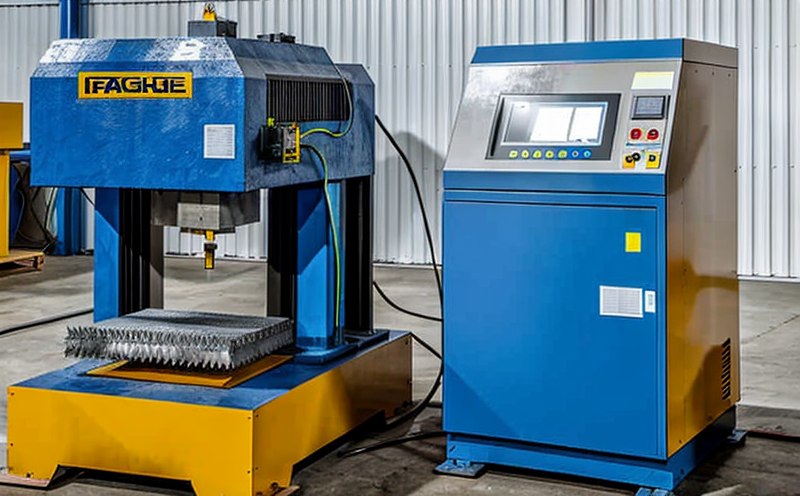Fatigue testing of metal and composite materials
The Crucial Role of Fatigue Testing in Ensuring Material Reliability A Laboratory Service Provided by Eurolab
As companies strive to innovate and push the boundaries of what is possible with materials science, the demand for reliable and high-performance materials continues to grow. One critical aspect of material development that often receives less attention than it deserves is fatigue testing. Fatigue testing of metal and composite materials is a laboratory service that plays a vital role in ensuring the longevity and safety of products across various industries.
At Eurolab, our team of expert scientists and engineers understands the importance of fatigue testing in preventing failures, reducing costs, and improving product performance. In this article, we will delve into the world of fatigue testing, exploring its benefits, advantages, and applications. We will also address some frequently asked questions to provide a comprehensive understanding of this crucial laboratory service.
What is Fatigue Testing?
Fatigue testing involves subjecting materials to repeated cycles of loading and unloading to determine their resistance to fatigue failure. This process simulates the real-world conditions that materials are subjected to, allowing researchers to predict how they will perform over time. Fatigue testing can be performed on various types of materials, including metals, composites, polymers, and ceramics.
Why is Fatigue Testing Essential?
Fatigue testing is crucial for businesses because it helps prevent failures, reduces costs, and improves product performance. Some key reasons why fatigue testing is essential include
Prevents Catastrophic Failures By identifying potential weaknesses in materials, fatigue testing prevents catastrophic failures that can result in costly downtime, damage to equipment, and even loss of life.
Reduces Maintenance Costs Regular fatigue testing helps maintain products in optimal condition, reducing the need for frequent maintenance and repairs.
Improves Product Performance Fatigue testing enables manufacturers to optimize material selection, design, and production processes, leading to improved product performance and reliability.
Enhances Safety By ensuring that materials can withstand repeated loading and unloading cycles, fatigue testing improves safety in industries such as aerospace, automotive, and construction.
Advantages of Using Fatigue Testing
The advantages of using fatigue testing are numerous. Here are some key benefits
Predictive Maintenance Fatigue testing enables predictive maintenance, allowing companies to schedule maintenance at optimal intervals, reducing downtime and costs.
Material Selection By understanding the performance characteristics of different materials, manufacturers can select the most suitable materials for their products, improving reliability and safety.
Design Optimization Fatigue testing informs design optimization, enabling engineers to create more efficient and effective designs that meet performance requirements.
Quality Control Regular fatigue testing ensures consistent quality control, reducing defects and improving overall product quality.
QA Understanding Fatigue Testing
Here are some frequently asked questions about fatigue testing
What types of materials can be tested using fatigue testing?
Metals (aluminum, steel, titanium)
Composites (carbon fiber, glass fiber)
Polymers
Ceramics
How is fatigue testing performed?
Fatigue testing involves subjecting materials to repeated cycles of loading and unloading using specialized equipment such as tension-tension fatigue machines or compression-compression fatigue machines.
What are the benefits of fatigue testing for industries?
Aerospace improved safety, reduced maintenance costs
Automotive enhanced performance, reliability
Construction improved durability, reduced maintenance costs
Conclusion
Fatigue testing is a critical laboratory service that plays a vital role in ensuring material reliability and preventing failures. By understanding the advantages of fatigue testing, companies can improve product performance, reduce costs, and enhance safety. At Eurolab, our team of expert scientists and engineers are dedicated to providing high-quality fatigue testing services that meet the needs of various industries.
Whether youre developing new materials or optimizing existing ones, fatigue testing is an essential step in ensuring your products meet performance requirements. By partnering with us at Eurolab, you can benefit from our expertise and state-of-the-art facilities, gaining confidence in the reliability and safety of your products.
We look forward to working with you to take your material development to the next level.




